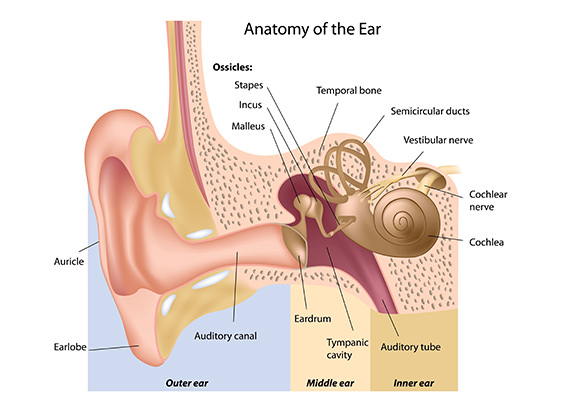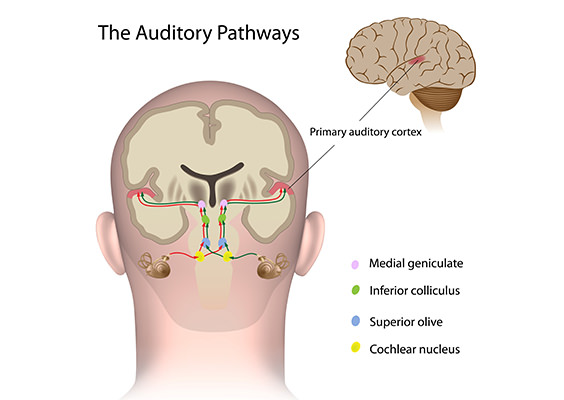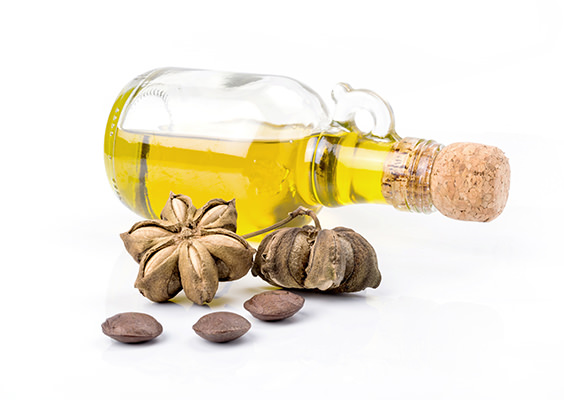If you’re suffering from tinnitus, I’m pretty sure doctors and ENT specialists have told you something like: “I’m afraid you’re just going to have to live with it” or “It’s just age-related hearing loss.”
What is tinnitus?
Tinnitus, the constant ringing, thundering, whooshing or whistling in the ears, is aggravating and nerve-racking. It robs you of sleep. It shatters your focus and concentration. And it drowns out your hearing, because of all the background noise in your head.
Tinnitus is not a disease, but rather a symptom of some other underlying health condition.
Mainstream medicine hasn’t a clue when it comes to dealing with it. They’ll tell you tinnitus is just age-related hearing loss or the result of a traumatic injury.
And the mainstream solution is usually a prescription for anti-depressants or tranquilizers to numb your mind. Or they might recommend a hearing aid that masks the uncomfortable sounds of tinnitus.

-11869" />
But tinnitus is rooted not only in the ear and the auditory nerve that connects the inner ear to the brain, but the brain itself.
One of the primary causes of the disorder is over-the-counter pain relievers.
Mainstream medicine is also ignoring the fact that tinnitus can often be prevented and reversed with the right nutrients.
If mainstream doctors knew anything about natural remedies, they would know how I make tinnitus disappear in my patients. In a minute I’m going to show you how you can do that, too.
What causes tinnitus?
One of the most common causes of tinnitus is non-steroidal, anti-inflammatory painkillers, like Advil, Aleve and Motrin, as well as some cholesterol-lowering and cancer drugs, and also antibiotics.
Chronic ear infections, smoking, food allergies and aspartame, the most common sweetener in diet soda, can also cause the disorder, which impacts more than 30% of adults over age 65.1,2
Aspartame, which has been deemed safe by the FDA, is known as an “excitatory neurotransmitter.” It increases electrical activity in the brain, specifically in the auditory cortex.

If you already have tinnitus, you have an elevated level of electrical activity in the brain, and more electrical activity is the last thing you need.
Whatever the cause, your tinnitus is a degenerative process characterized by chronic inflammation.
That’s why the biggest clue to preventing and turning around tinnitus is found in the Blue Mountains Hearing Study, which followed almost 3,000 people for eight years.
Lower Your Risk of Tinnitus
Researchers found that people with the highest weekly intake of omega-3 fatty acids had a 42% lower risk for developing tinnitus and other hearing problems.3
Your first lines of defense against tinnitus should be:
- Stop taking ibuprofen: This includes brand names such as Advil, Children’s Advil/Motrin, Medipren, Motrin, Nuprin, PediaCare Fever and others.
- Protect your ears with healthy omega-3 fats: I recommend you get around three grams of omega-3 every day.
Good sources of omega-3 include cold-water, high-fat fish, like mackerel, wild salmon, lake trout and herring. Also, you can eat plenty of raw nuts and seeds. Walnuts, almonds and pumpkin seeds are some of my favorites. Two other great sources of omega-3 are cod liver oil and Sacha Inchi oil. You get almost 7 grams of omega-3 in each tablespoon of Sacha Inchi, and nearly a gram with
each teaspoon of cod liver oil.

- Turn down the noise with ginkgo biloba: This is another natural remedy for avoiding tinnitus and other hearing issues. It’s an extract from the leaf of a tree native to China that dates back 270 million years.4
More than 40 clinical studies show that ginkgo eases tinnitus. One German study of tinnitus sufferers shows that ginkgo reduces ringing. Another review of studies states that taking ginkgo for one to three months provides significantly greater reduction and speedier relief.5,6
I recommend 80 mg three times a day.

If your tinnitus was caused by exposure to loud noises, I recommend you use the brain-booster vinpocetine for relief. It’s widely used in nearly 50 countries, including Hungary, Germany, Poland, Russia and Japan, but doctors in the Americas don’t seem to know much about it.7
In one study, tinnitus disappeared in half of those who took it within one week of trauma.
Even if you don’t take it right away, it can lessen the severity. Regardless of the time lapse since the trauma, 66% saw a significant decrease. I recommend 20 mg a day.8
To Your Good Health,

Al Sears, MD, CNS
1.Langguth, B; Kreuzer, PM; Kleinjung, T; De Ridder, D (Sep 2013). “Tinnitus: causes and clinical management.”. Lancet neurology 12 (9): 920–30. doi:10.1016/S1474-4422(13)70160-1. PMID 23948178
2. Pisarik P1, Kai D. Vestibulocochlear toxicity in a pair of siblings 15 years apart secondary toaspartame: two case reports. Cases J. 2009 Sep 15;2:9237. doi: 10.4076/1757-1626-2-9237.
3. Gopinath, Bamini, Flood, Victoria M., Rochtchina, Elena, et al, “Consumption of omega-3 fatty acids and fish and risk of age-related hearing loss,” Am. J. Clin. Nutr. August 2010; 92( 2): 416-421
4. Morgenstern C. et al., The efficacy of Ginkgo special extract EGb 761 in patients with tinnitus. Int J Clin Pharmacol Ther. 2002 May; 40(5): 188-97.
5. Sun, W. 1998. Ginkgo biloba. The IUCN Red List of Threatened Species. Version 2015.2. Downloaded on 07 September 2015.
6.Ernst and Stevinson. “Ginkgo biloba for tinnitus: a review,” Clinical Otolaryngology & Allied Sciences Volume 24 Issue 3 Page 164 – June 1999.
7. Burtsev et al. “10-year experience with using Cavinton in cerebrovascular disorders.” Zh Nevropatol Psikhiatr Im S S Korsakova. 1992. 92:56-60.
8. Konopka W, Zalewski P, Olszewski J, Olszewska-Ziaber A, Pietkiewicz P. “Treatment results of acoustic trauma.” Otolaryngol Pol. 1997;51 Suppl 25:281-4.






